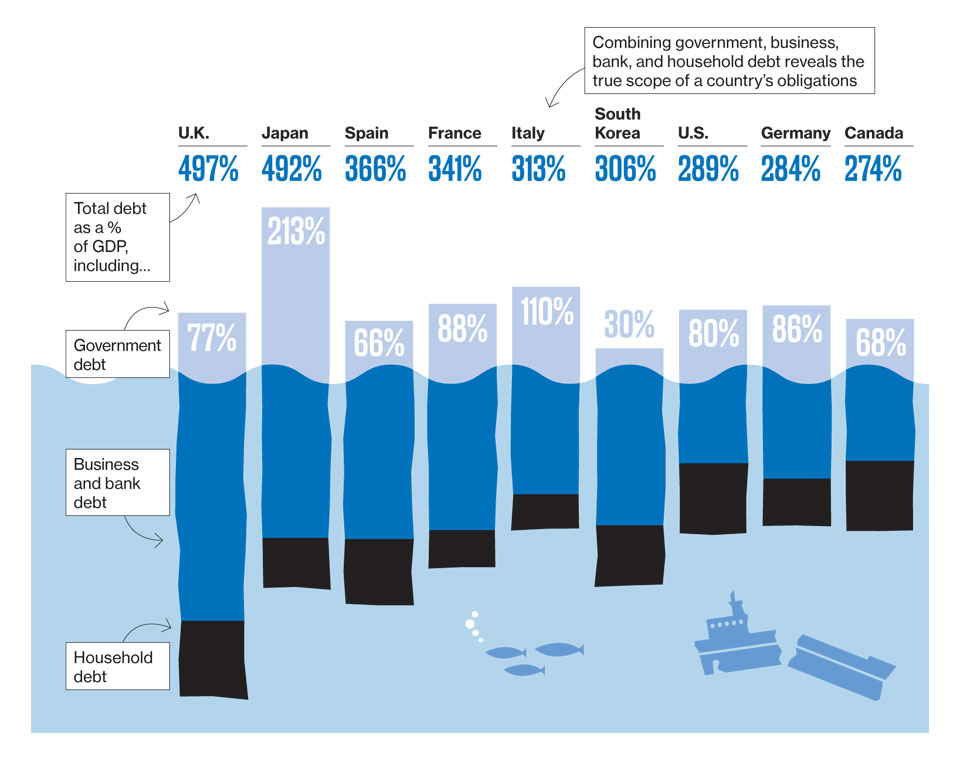08:49 – Well, as expected, the crisis summit today has turned into a complete fustercluck. Not only is there zero chance of comprehensive actions to address the euro crisis, the participants can’t even agree about what to argue about. And, oh by the way, the Italian government is teetering on the brink of collapse, mainly because of German demands that Italy increase retirement age to 67, as Germany has done. Collapse of Italy’s fragile coalition was narrowly averted yesterday, but it looks like Berlusconi is on his way out, and sooner rather than later. If that happens, it could be months before Italy again has a functioning government.
The collapse of Italy’s government would eliminate even the slightest mathematical chance of saving the euro and the EU. Even with the ECB buying Italian bonds, yields on those bonds are now above 6%, the catastrophic level that convinced the ECB to intervene in the first place. And Italy has to rollover €250 billion worth of bonds over the coming year, just to stay even. Even with a functioning government, it’s extremely unlikely that Italy could sell €250 billion of bonds over the next year no matter how high the yields. If the government collapses, there’s no question that Italian bond sales will also collapse, leaving Italy with no way to pay off maturing bonds. In other words, Italy will default, joining Greece, Ireland, and Portugal. The EFSF bailout fund is insufficient even to cover expected losses on Greece, let alone Ireland and Portugal. If Italy joins the group of bankrupt nations, there is zero hope that it can be bailed out. And it’s looking likely that Italy will join that group in the next few months, if not the next few weeks.
12:31 – Barbara sent me a link to this forensics blog, which looks very interesting. The author, Tom Adair, is a retired forensics guy with 15 years of experience. Unlike most of the forensics sites I follow, which are intended for forensic scientists and technicians, this blog is targeted at fiction authors and readers. I’ve only looked at half a dozen random articles, but it appears that this guy knows what he’s talking about. If you have any interest at all in real crime-scene investigation and criminal forensics, check out this blog.

